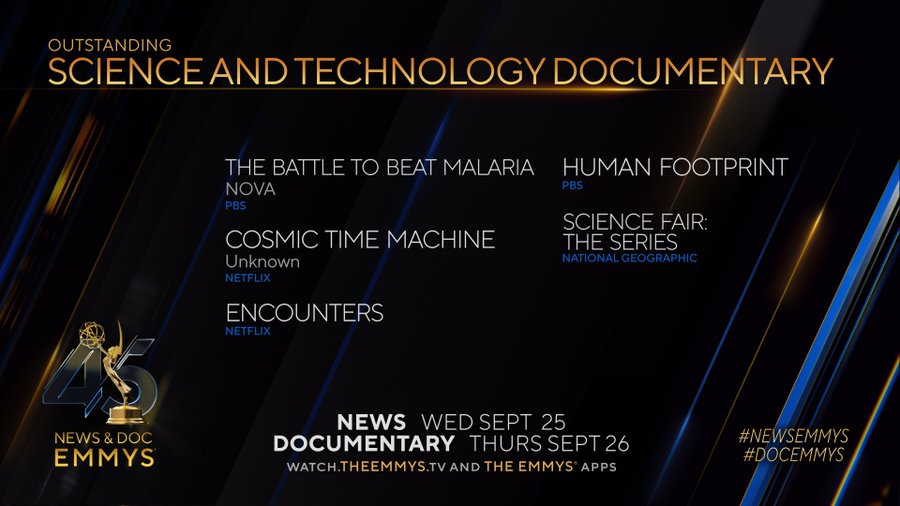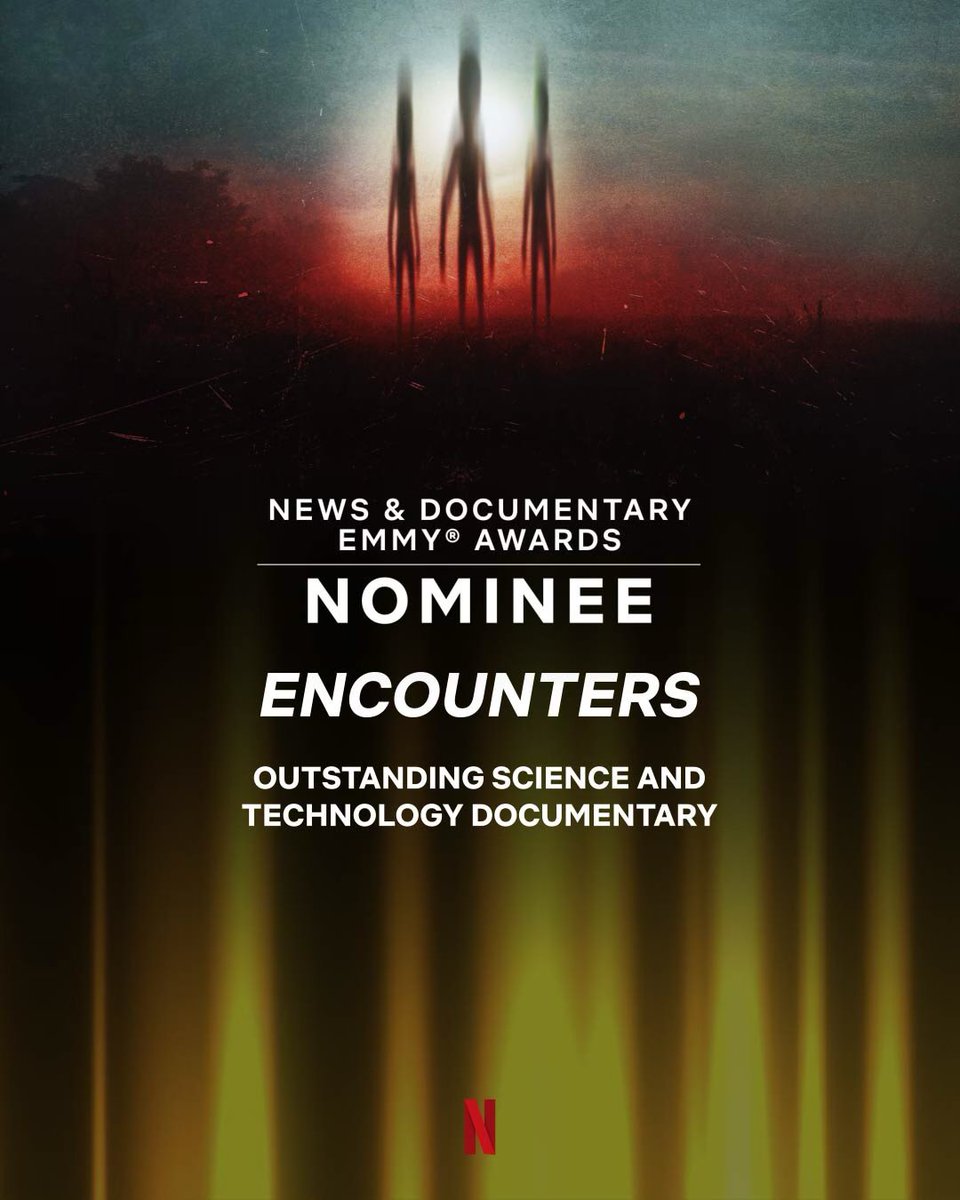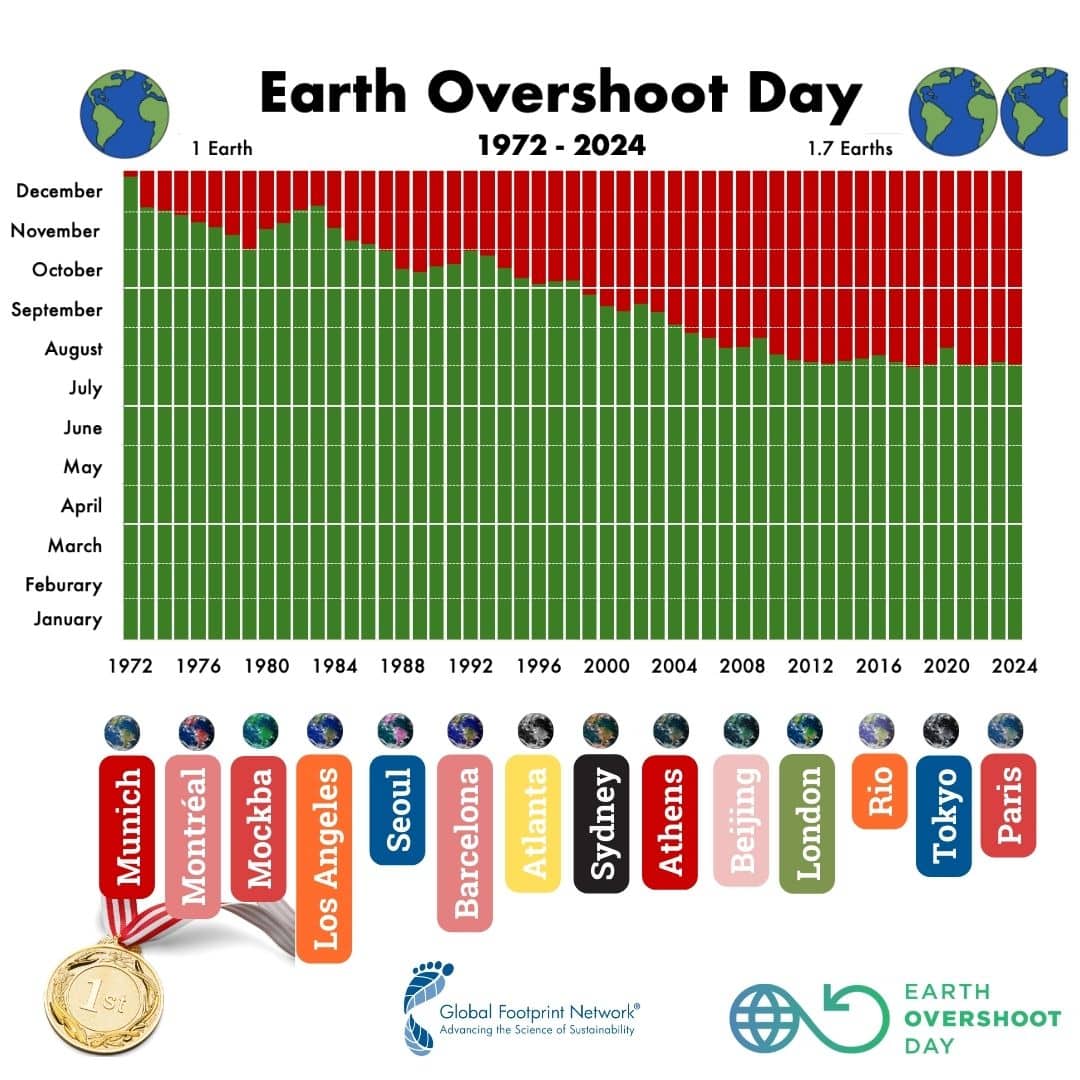
Happy Earth Overshoot Day! I'll get to the international day itself over the jump. Instead, I'm inspired by the event's creator, the Global Footprint Network, to examine PBS's Human Footprint, one of the nominees for Outstanding Science and Technology Documentary at the News and Documentary Emmy Awards. Watch Exploring Our Impact on Planet Earth | Human Footprint | PBS.
Host Shane Campbell-Staton and Director Nathan Dappen explore how humans have impacted and changed the planet in this first look from Human Footprint. Shane explains how PBS has shaped his storytelling.This is my personal favorite, especially because I've used clips from the series multiple times, most recently in PBS Terra on 'the invasive Burmese Pythons of the Everglades' for World Snake Day and Vox and PBS ask 'Why do we have grass lawns?' I might show the former to my students. I've already shown them the first video in Whales and fish, two stories I tell my students. That's how much I like the series and appreciate its educational value.
...
Human Footprint with Shane Campbell-Staton:
Earth has never experienced anything like us: a single species dominating and transforming the planet. Biologist Shane Campbell-Staton travels the globe to explore our Human Footprint and to discover how the things we do reveal who we truly are.
Follow over the jump to watch the other four nominees' trailers and observe Earth Overshoot Day.
I resume examining the nominees for Outstanding Science and Technology Documentary with WINGSPAN PRODUCTIONS The Battle To Beat Malaria (2023), the first nominee in alphabetical order according to the Emmys.
I'm sharing the video description from NOVA documentary traces the development of new, breakthrough malaria vaccine by GBH News.
Malaria kills more than 600,000 people each year, most of them children under the age of five. But that could soon change with the development of a new malaria vaccine. The R21 vaccine is the second vaccine recommended by the World Health Organization. Because R21 is inexpensive to manufacture, it can be produced on a massive scale. A new NOVA documentary, “The Battle to Beat Malaria,” chronicles the vaccine’s journey from development and testing to approval. One of the scientists behind the vaccine, Sir Adrian Hill, and Catherine Gale, a director and producer of the film, joined Tori Bedford to discuss.Malaria is another story I tell my students, so this is another documentary I will recommend to them.
Next, UNKNOWN: Cosmic Time Machine | Official Trailer | Netflix.
With unique access behind-the-scenes to NASA’s ambitious mission to launch the James Webb Space Telescope, we follow a team of engineers and scientists as they take the next giant leap in our quest to understand the universe.A documentary about the James Webb Space Telescope earned a nomination for Outstanding Science and Technology Documentary last year and another earned a nomination this year. I'm not surprised. The James Webb Space Telescope was the top science story of 2022 and a major reason why 2022 and 2023 were great years in space.
Cosmic Time Machine's trailer currently has 711,389 views, but it's dwarfed by Encounters | Official Trailer | Netflix with 1,352,770 views.
For decades, we’ve relegated alien encounters to the realm of conspiracy, dismissing those who’ve seen the unexplainable. Now congressional hearings on UFOs bringing revelations from whistleblowers about clandestine Pentagon programs and major journalistic institutions confirm that...we are not alone.My wife and I have watched this series and it examines UFOs as seriously as John Oliver hoped for, so it has that going for it. As I wrote above, its trailer currently has 1,352,770 views, the show itself debuted at number one on Netflix's original series charts, and was number three the next week. Lots of people, including the News and Documentary Emmy Awards voters, have watched it, which is more than I can say about the rest of the nominees. It helps its cause that someone, probably Netflix, is running a promotional campaign on Twitter.
ENCOUNTERS, executive produced by Amblin Television, Emmy-winning Boardwalk Pictures and Vice Studios, and directed by Yon Motskin (Generation Hustle), is a landmark four-part series that travels the globe to explore four extraordinary true stories of encounters with otherworldly phenomena. Each cinematic and deeply-researched episode tells a single story: strange lights in the sky over small-town Texas; submersible space crafts haunting a coastal Welsh village; an alien encounter in a schoolyard in Zimbabwe; non-human intelligence reportedly interfering with a nuclear power plant in Japan.
As told from the perspective of firsthand experiencers – in the places where the sightings occurred – and guided by cutting-edge scientists and military personnel, the series goes beyond the science to highlight the profoundly human impact of these encounters on lives, families, and communities. A timely and timeless cosmic detective story, what will be revealed from this puzzle of seemingly unrelated encounters across different places, times and cultures is a set of uncanny similarities, and one astonishing truth: Extraterrestrial encounters are global, awe-inspiring, and unlike anything we’ve ever imagined.

Again, that's more than I can say about the rest of the nominees. That written, I don't think many, if any, scientists among this group of Emmy voters will vote for it. I'm sure they'll pick another nominee, but if they don't consolidate on one nominee, they'll split their votes, and there aren't enough of them to beat out the documentarians and journalists. They will probably be enough for it to win.
I close this section of the post with Science Fair: The Series | Official Trailer | National Geographic, the final nominee.
Inspired by the Sundance Festival favorite and SXSW Audience Award-winning documentary directed by Cristina Costantini and Darren Foster, SCIENCE FAIR: THE SERIES showcases students working to solve the world’s most complex and pressing issues using science while competing for a coveted spot at the International Science and Engineering Fair (ISEF), the most competitive science fair on the planet. The series also follows the families and teachers, including SCIENCE FAIR fan-favorite Dr. Serena McCalla, as they support and push their students along the way. It’s an inspiring, character-driven coming-of-age story playing out on a global stage where students push themselves to the limit but never miss an opportunity to uplift one another. All episodes premiere Dec. 10 starting at 9/8c on National Geographic, stream next day on Disney+ and Hulu.Science Fair the movie documentary won this category in 2019 and its directors Cristina Costantini and Darren Foster tied with Minding the Gap's Bing Liu for Best First Time Director at the 2018 Critics Choice Documentary Awards, which I find auspicious. It helps that this looks like the most fun nominee. Good, it needs any advantage it can get in this field, especially against Encounters.
Now for Global Footprint Network announcing AUGUST 1ST IS EARTH OVERSHOOT DAY on World Environment Day (but uploaded on Souther, Detroit-style Pizza Day, and Pink Day.
On World Environment Day, we revealed this year's Earth Overshoot Day as August 1.As the video host pointed out, Earth Overshoot Day hasn't changed much this decade or last, especially after it has been recalculated, after four decades of advancing closer to the midpoint of the year, as shown by the following graphic.
What's it all about?
We have used up Earth's biological resources for the entire year in only 7 months!

That's somewhat good news; at least we're not using more total resources, despite the population increasing by one billion between 2011 and 2022, so we're being more sustainable on a per capita basis. Still, as the above graphic shows, we were using a lot less between 1972 and 1984, when there were between four and five billion humans on this planet. That makes it easier. As I noted on World Population Day, the irony is that people think there aren't enough babies being born to maintain business as usual. I've been fighting that for a decade.
That's it for today's post. Stay tuned for another current events entry tomorrow.
Previous entries about the 45th News and Documentary Emmy Awards
No comments:
Post a Comment